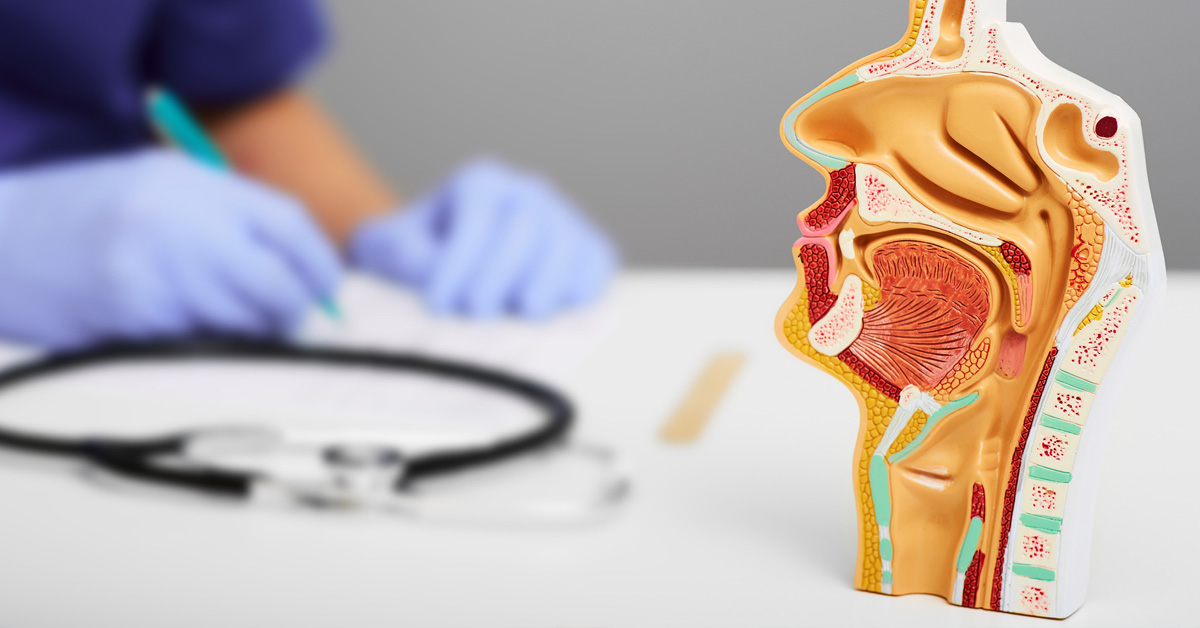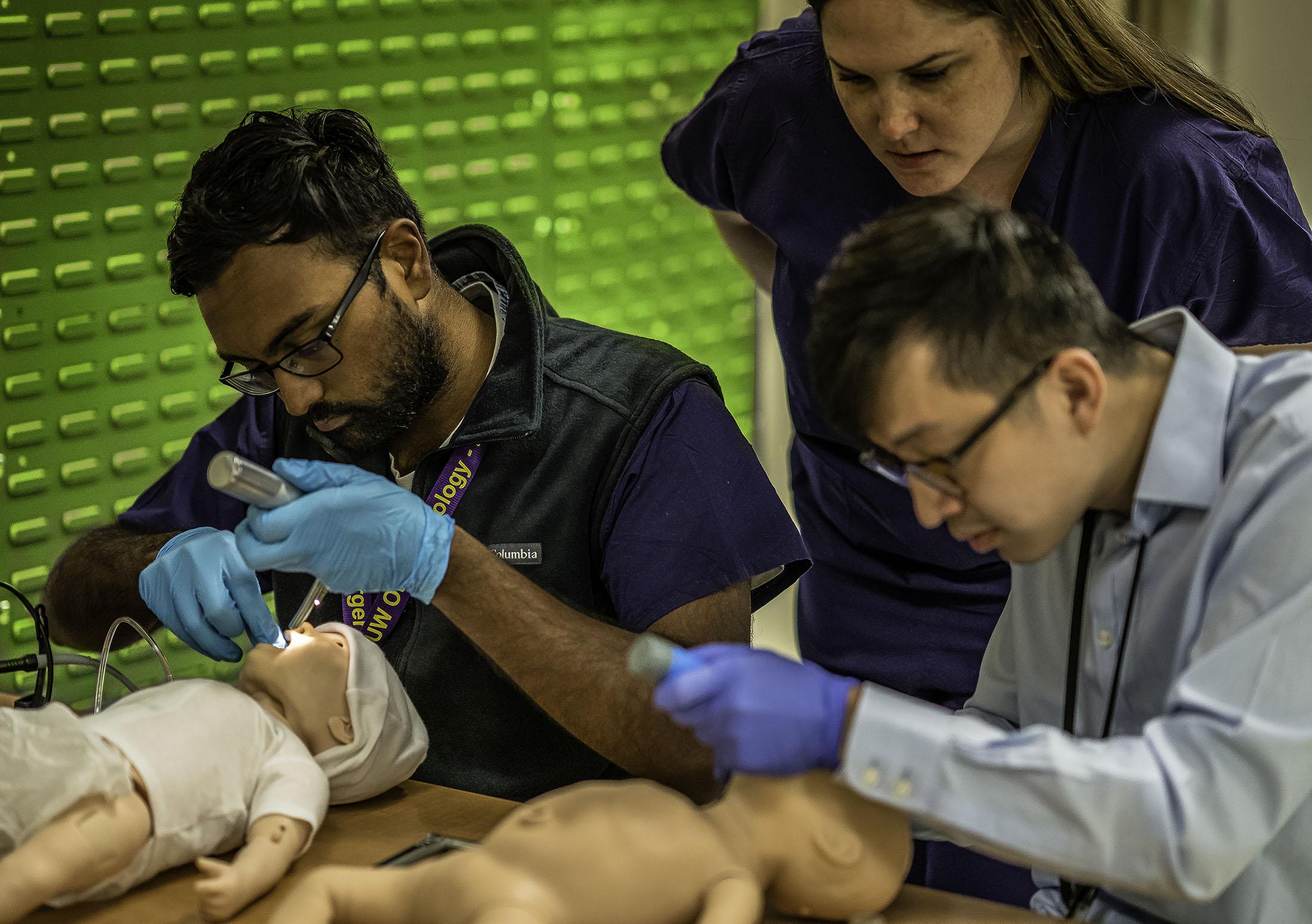Checking out the Field of Otolaryngology: What to Anticipate When You Get In Touch With an ENT
Otolaryngology, typically referred to as ENT, encompasses the medical diagnosis and therapy of ear, throat, and nose conditions. For those experiencing relevant problems, getting in touch with an ENT professional can give clarity and relief. Understanding what to expect throughout such appointments is crucial for effective communication and treatment. This summary will describe vital facets of the ENT experience, consisting of usual reasons for brows through and the procedures included in diagnosis and therapy.

Recognizing Otolaryngology: A Review
Otolaryngology, commonly described as ENT (Throat, nose, and ear) medication, is a customized branch of medication that concentrates on the medical diagnosis and therapy of problems affecting these crucial locations of the human body. This field encompasses a vast array of conditions, consisting of those pertaining to hearing, equilibrium, respiratory feature, and speech. Otolaryngologists are trained to manage both medical and clinical therapies, using innovative strategies and innovations. Their knowledge extends past typical conditions, resolving problems such as allergic reactions, sinus infections, and hearing loss. Furthermore, they play a vital duty in the monitoring of head and neck cancers cells, offering detailed treatment customized to individual patient requirements. In general, otolaryngology stays necessary for keeping health and wellness and top quality of life in afflicted people.
Usual Factors to See an ENT Expert
Numerous people seek the proficiency of an ENT specialist for a range of reasons, mirroring the diverse nature of conditions that influence the nose, ear, and throat. Usual issues include persistent sinus problems, which usually brings about persistent nasal blockage and face discomfort. Allergic reactions and their linked signs, such as sneezing and itching, also trigger sees to these professionals (Otolaryngology). Hearing loss, whether progressive or sudden, is another significant reason for assessment. Additionally, individuals may look for analysis for throat problems, including persistent hoarseness or ingesting problems. Rest apnea, identified by disrupted breathing during sleep, is often attended to by ENT specialists also. Each of these problems highlights the relevance of specialized care in handling complex ENT-related health issues
Preparing for Your ENT Visit
When preparing for an ENT consultation, it is necessary to gather relevant information and take into consideration any details worries. People ought to assemble an in-depth clinical background, including previous ear, nose, or throat problems, surgeries, and current medicines. Documenting symptoms-- such as frequency, duration, and intensity-- can provide useful understandings for the ENT professional. Additionally, people should prepare a list of questions they want to ask, making sure that all issues are attended to during the go to. Bringing along any type of pertinent medical records or test results can further assist the ENT in understanding the individual's condition. Clients must validate their consultation information, consisting of day, time, and area, to reduce any type of final complication. Correct prep work can boost the performance of the consultation and lead to better outcomes.
What to Expect During the Consultation
As the assessment begins, the patient can anticipate to involve in a comprehensive discussion with the ENT expert about their signs and case history. The expert will ask about the duration, frequency, and seriousness of symptoms such as hearing loss, nasal congestion, or sore throat. Additionally, the patient's previous clinical problems, medicines, and any type of appropriate household background will be reviewed, assisting the expert in forming a full understanding of the client's health. The ENT might also ask concerning way of life factors, such as direct exposure to irritants or irritants. This open dialogue develops a foundation for the appointment, making sure that the patient's worries are attended to and establishing the stage for any type of necessary evaluations or suggestions for therapy.
Diagnostic Examinations and Treatments in Otolaryngology
A series of analysis tests and treatments are important in otolaryngology to properly assess and detect conditions impacting the nose, throat, and ear. Common tests consist of audiometry, which measures hearing function, and tympanometry, examining center ear pressure. Nasal endoscopy enables visualization of the nasal flows and sinuses, while laryngoscopy analyzes the throat and singing cords. Imaging methods, such as CT scans and MRIs, provide in-depth sights of head and neck structures. Allergic reaction screening may likewise be carried out to recognize triggers for sinus or respiratory system issues. These diagnostic tools allow ENT professionals to create a complete understanding of patients' conditions, guaranteeing tailored and efficient administration strategies. Correct medical diagnosis is essential for successful treatment outcomes in otolaryngology.
Treatment Choices Used by ENT Specialists
ENT experts provide a variety of treatment options tailored to address specific conditions affecting the ear, throat, and nose. These treatments sinus swelling relief range from conservative approaches, such as drug and way of living alterations, to even more invasive procedures. Allergic reactions may be taken care of with antihistamines or immunotherapy, while persistent sinus problems may need nasal corticosteroids or sinus surgery. For hearing loss, ENT specialists frequently recommend listening device or surgical interventions like cochlear implants. In situations of throat conditions, alternatives can include speech therapy or surgical treatments to remove obstructions. Furthermore, visit our website they may supply assistance for handling rest apnea, including using CPAP tools or surgical treatments. Generally, the objective is to enhance clients' lifestyle via individualized treatment and effective treatment strategies.
When to Seek Follow-Up Treatment With an ENT
When to seek follow-up treatment with an ENT professional is crucial for handling continuous signs or complications connected to throat, nose, and ear conditions, identifying. Clients should take into consideration arranging a follow-up visit if signs persist in spite of first treatment, such as chronic ear pain, nasal blockage, or throat pain. Adjustments in hearing, equilibrium issues, or unusual nasal discharge might likewise require additional analysis. Furthermore, if a person experiences negative effects from suggested medicines or has undertaken a surgery, follow-up treatment is very important to check recovery and attend to any problems. Timely consultations can assure reliable management of conditions, prevent possible problems, and give satisfaction regarding one's health and wellness. Seeking follow-up treatment promotes proactive health management in otolaryngology.
Regularly Asked Questions

What Qualifications Should I Look for in an ENT Professional?
When seeking an ENT specialist, one ought to look for board certification, pertinent experience, and strong person reviews. In addition, effective interaction skills and a caring strategy can greatly enhance the total Read Full Article treatment experience.
How Do I Choose the Right ENT for My Demands?
Selecting the right ENT specialist includes evaluating their credentials, experience, and person testimonials (Hearing). It is necessary to ponder their communication style and strategy to therapy, guaranteeing they align with the individual's particular wellness demands and preferences
Are There Any Type Of Risks Linked With ENT Procedures?
The dangers connected with ENT treatments may consist of infection, blood loss, anesthetic difficulties, and prospective damage to surrounding structures. People must review these dangers with their medical professional to recognize individual problems and assurance informed decisions.
Just How Can I Handle Anxiousness Prior To My ENT Appointment?
To manage anxiety prior to a consultation, people can practice deep breathing exercises, picture favorable end results, prepare questions ahead of time, and seek assistance from buddies or family members, fostering a sense of peace of mind and calmness.
What Should I Do if I Experience Adverse Effects From Therapy?
The individual should without delay report them to their healthcare supplier if side results from treatment happen. Changes to treatment or added interventions may be essential to ensure safety and performance in handling their condition - Otorrinolaringologia. As the consultation starts, the client can expect to engage in a complete discussion with the ENT specialist regarding their signs and clinical history. These analysis devices allow ENT professionals to create a detailed understanding of people' problems, making sure customized and reliable management plans. ENT professionals use a variety of treatment choices customized to resolve specific problems impacting the ear, throat, and nose. When looking for an ENT specialist, one need to look for board certification, appropriate experience, and solid patient testimonials. Choosing the right ENT expert entails evaluating their credentials, experience, and patient testimonials